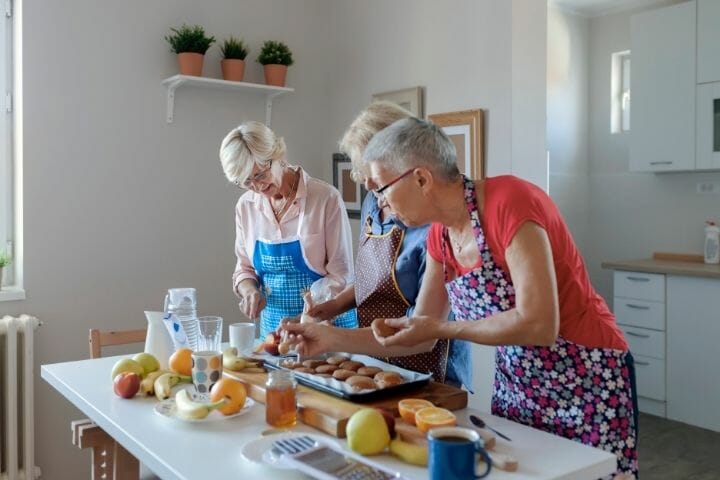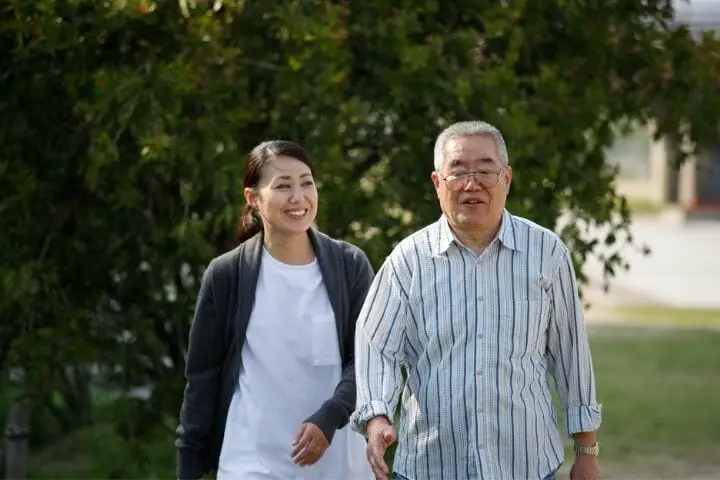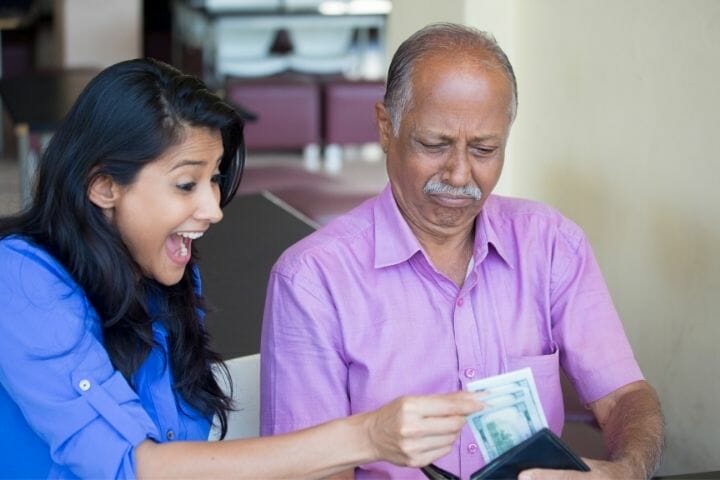While we often discuss the medical aspects of aging, the social determinants of health for seniors remain largely undiscussed. This article will talk about these often neglected aspects of health as you grow old.
Contents
As people age, their health deteriorates with an increased risk of diseases and injuries. Apart from the health risk due to old age, genetics, and accidental injuries, other factors influence the health of a human being.
Social determinants of health are the external factors not linked with the medical field but still have an impact on our health. Social determinants include the conditions that people are born into, live and work in, and grow old.

The living condition of people is responsible for their health as a better living condition would mean them having better education, high paying jobs, and thus better economic status. Improved economic conditions mean they will have access to high-quality food and better health care services.
For seniors, it becomes essential that they have access to better living conditions as they are more prone to falling ill and sustaining injuries, leading to some severe health risks.
We will discuss the social determinants of health for seniors and why not all seniors have access to good living conditions.
Social Determinants Of Health In Seniors
While the social determinants of health are the conditions that people are born, live, work, and age in, but for seniors, they change slightly. Let’s look at some of the important social determinants of health for seniors that are essential for a healthy life.
Access to inexpensive and nutritious food
The nutritional requirements of a person are never constant. It keeps on changing as a person goes through different life stages. Similarly, a person’s diet changes as they grow old and stop being as active as they were at a young age.
Seniors often have several health conditions like diabetes, kidney or heart conditions that require them to follow a specific diet with better quality food. Also, food quality directly impacts the eyesight, bone health, immunity, and overall physical well-being of a person.
But, often, healthy food options are expensive. In old age, people of low economic status may have trouble getting healthy and nutritious food, which will have a negative impact on their health. According to the AARP foundation’s report, about 22.9% of seniors age 65+ of the lower-income group face food insecurity.
Having access to healthy food will impact the health of a senior positively. It is essential that every senior has access to inexpensive and nutritious food, as that will decrease the risk of several diseases and thus will enhance their living conditions.

Housing
When people age, they often lose access to their homes due to financial issues or having to move to assisted living facilities. A senior needs to have a place to live comfortably.
While a senior from a higher economic stature will most probably have a house, a senior from a lower economic background may not own a house, resulting in them not having a place to live. For seniors, it is essential to have a place where they can age safely.
Transportation
Transportation is another social determinant of health in seniors. As people age, they can experience the loss of mobility, and that can cause them to have trouble moving from one place to another.
Also, poor eyesight, hearing loss, and loss of strength in arms and legs can cause the inability to drive a vehicle safely.
A senior may need to visit the doctor or a family member. They must have a safe transportation medium for traveling.
Rural areas seem to have more problems related to transportation as there are not many public transport options, which can lead to delayed visits to a doctor.
Health Care
Access to good quality and inexpensive health care is a must for seniors. As people age, their body organs start to lose their functionality, and as our health deteriorates, they need to visit doctors frequently.
Often people in old age suffer from several diseases like heart conditions, diabetes, cancer, and others. According to the CDC, almost 85% of the seniors have one chronic health condition, and almost 60% of the seniors suffer from two chronic health conditions.
The cost of getting treated for these diseases is high and unaffordable for seniors if they do not have any financial help or savings.
There are government-operated health insurance services like medicare and Medicaid that bear some of the cost of the treatment and medicines, but often people have to bear some of the cost. It is essential to provide better health services at a lower cost to seniors of lower economic status.

Financial resources
Having access to financial resources is the most important social determinant for a senior as it allows them to access housing, good quality food, transportation, and better health care.
Having better education will increase the chances of people getting a high-paying job, increasing their economic status. Seniors from a lower economic background need help from the government and other social groups to have financial help in their old age.
Social Connection
Socializing in old age is extremely important as loneliness in older age can lead to several health risks. According to the CDC, people living alone are at 50% more risk of developing dementia. People having less social interactions have a 29% more risk of developing a heart condition and 32% more risk of getting a stroke.
Often people of old age are neglected by their families and live alone. In America, almost 27% percent of seniors having age 60 and above are living alone.
For a senior to have better physical and mental health, they must socialize with other people. Living in a community made specifically for seniors would help.

Factors Affecting The Access To Healthy Living Conditions In Seniors
Certain factors cause inequality among people belonging to the same age group and having the same requirement of living conditions. The geographical location, gender, race, and economic status of people directly impact the ability of a person to have better health.
Geographical Location
Rules and policies change with your geographical location. People living in some countries may have better access to medical facilities at a lower cost than others.
In developed countries, people will have better access to clean drinking water, healthy food, and a clean environment than in underdeveloped and developing countries.
People of developed countries will also have better quality education and better job opportunities. Earning better will improve their economic condition, which is the key to improving their living condition.
Some countries might have better health policies for seniors, which can lead to seniors in those countries having better healthcare if they fall sick compared to others.
Gender
Compared to the older times, gender inequality has surely lessened in several fields. To some extent, women now have access to higher education, better jobs, and equal pay. But, health equality is a field where there is much room for improvement.
Even today, there are communities where women are prone to abuse and do not have access to high-quality health care.
Also, since the health factor of a person is co-dependent on them having better education and better pay, men do have an advantage over women.
In seniors, the main reason women do not have better access to healthy living conditions is that they are not educated and were dependent on their spouse or family when they were young and now do not have any financial help.

Race
The race of a senior also highly impacts their living condition. There are instances where people of socially disadvantaged populations don’t have similar access to factors responsible for achieving good health. Apart from their essential genetic difference, people of different races often have different living conditions.
People of minority races do not have similar access to education and even a job. They have to face inequality, leading to lower economic stature and poor living conditions. This becomes even more problematic in old age as the seniors cannot work and earn and thus do not have access to healthy living conditions.
Also, there is the violence against people of different races and the disparity in terms of achieving good health care, which causes people of some races and ethnicities to have better health than others.
Economic Status
The economic status of a person is probably one of the leading causes that impact a senior’s living condition. There is a great disparity among people belonging to different income groups.
People with a higher income will have some funds or savings to bear their cost of living when they get old and cannot work and earn. But people of lower-income groups do not have any such savings as they never earned enough to save, and when they get old and lose their ability to work, they do not have enough funds for better quality food and health care.
Several programs run by the government provide funds to old age people who do not have any savings, but even that is not sufficient to have a good living condition. And again, not every senior gets benefits from such programs.
Having better education and job opportunities at a young age is the key to improving a person’s economic status when they grow old.

Wrap Up
Social determinants of health in seniors consist of better quality food, housing, transportation, health care, social interactions, and financial resources.
Seniors must have access to better living conditions and have access to inexpensive and nutritious food to live a healthier life.
We hope this article sheds enough light on the topic to start a debate about the kind of social determinants older adults need for a happy old age.
If you liked the content, please share it with others who might like to know more about this topic.
